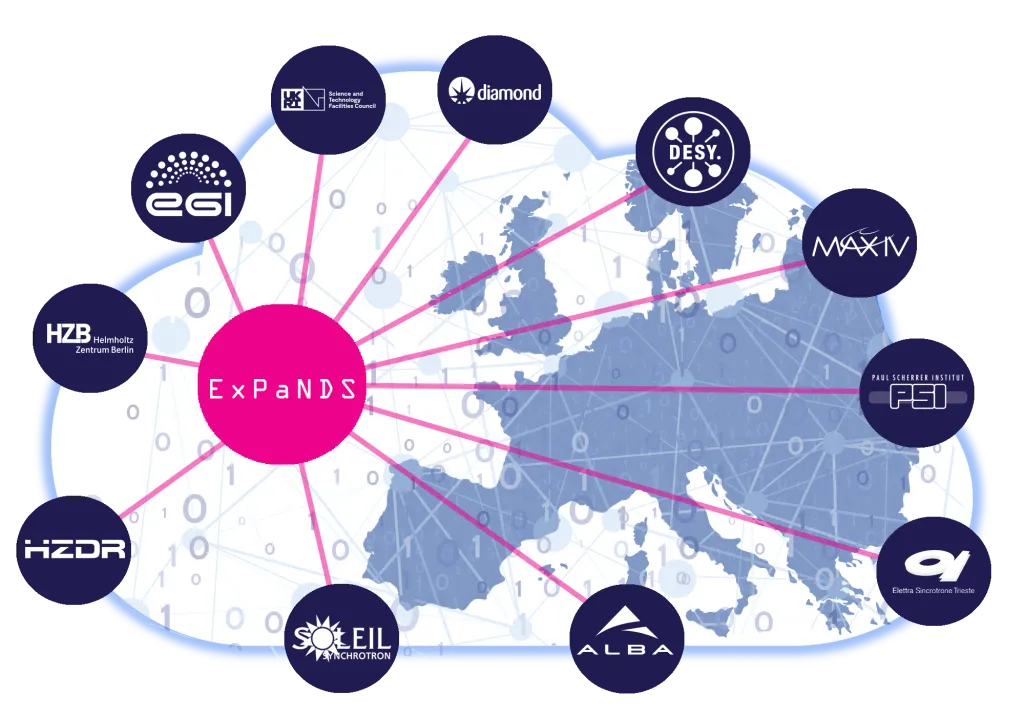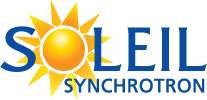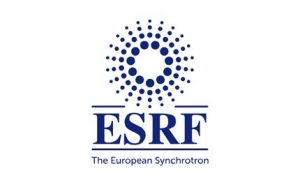-
video, slides
TELBE data analysis workflow and the PaN training platform UX
training platform workflow TELBE FAIR data correction wp5-ExPaNDS
-
video
ExPaNDS Promotional Video
expands FAIR open data EOSC wp6-ExPaNDS
-
video, slides
NOBUGS 2022
NOBUGS scientific software -
git, tool
ExPaNDS Photon and Neutron Experimental Techniques (PaNET) ontology
panet expands ontology experimental techniques wp3-ExPaNDS
-
Develop common rules and best practices between national RI’s and harmonize the provision of the EOSC services
expands workshop SciCat ICAT B2FIND OpenAIRE EOSC OAI-PMH data catalogue wp1-ExPaNDS
-
video, slides
Neutron diffraction from Boro-carbon for efficient structural analysis and defect detection
McStas simulation inelastic neutron scattering ab-initio neutron scattering neutron neutron diffraction defect detection structural analysis wp5-ExPaNDS
-
video, slides
Machine Learning-based Spectra Classification
machine learning XFEL FAIR large dataset NeXus spectroscopy wp5-ExPaNDS
-
video, slides
DOI, FAIR and MX COVID-19 use case
COVID research FAIR fragalysis drug development XChem PDB zenodo wp5-ExPaNDS
-
video
Photon & Neutron EOSC Symposium (November 2020)
expands EOSC PaNOSC FAIR CXIDB symposium
-
git, tool
ExPaNDS mapping dcat ontology and Nexus
expands ontology mapping NeXus DCAT semantic integration wp3-ExPaNDS
-
Document
ExPaNDS D3.2: Ontologies v1.0
expands ontology EOSC Photon science experimental techniques Neutron science deliverable D3.2 wp3-ExPaNDS
-
video, slides
Persistent Identifiers for Facilities Research Workshop
pid persistent identifiers expands wp2-ExPaNDS
-
slides
Joint Public Session ExPaNDS/PaNOSC on metadata catalogues (SciCat implementation) and future perspectives
expands PaNOSC open data wp3-ExPaNDS
-
Document
Synchrotron SOLEIL’s contribution to Quantum Materials
quantum materials information storage quantum topology superconductivity quantum computer
-
Document
Synchrotron SOLEIL’s contribution to Medical Diagnosis and Prognosis
detection sensitivity health diseases combined analysis techniques
-
Document
Synchrotron SOLEIL’s contribution to What’s on our plates
combined analysis techniques food safety allergens astringency
-
video
The European XFEL: start of user operation
XFEL free-electron laser
-
Git, tool
iFit: a simple library to analyze data
McStas DFT phonons matlab
-
Git
cif2hkl
McStas McXtrace CrysFML structure factor
-
video, slides
Beamline FAIRness Assessment Presentation
BESSY II FAIR expands open data wp2-ExPaNDS
-
video, slides
Librarian Symposium
expands open data persistent identifiers pid PUMA project publishing experiments F-UJI tool FAIR FAIR metrics wp2-ExPaNDS
-
Observation of the transition to metal hydrogen
metal hydrogen high pressure insulator-metal phase transition
-
pdf, git
PyMca tutorial
PyMca XRF
-
Document
Synchrotron SOLEIL’s contribution to Astrophysics & Astrochemistry
astrophysics astrochemistry cosmic dust molecules of life Titan
-
Poster
Learning pack: Synchrotron light
synchrotron light
-
Document
Learning pack: The synchrotron and its lights
synchrotron optics monochromators magnetic fields ultra-high vacuum applications xanes & exafs
-
Poster
Learning pack: Optics
synchrotron optical instruments
-
video
Synchrotron, a light source for research
synchrotron Soleil
-
git, jupyter notebook
How to read/edit a nexus file using h5py
NeXus
-
git, jupyter notebook
GenX tutorial
GenX jupyter notebook XRR
-
Learning path: Metadata catalogue services including PaN ontologies
Three different workshops were held linking metadata catalogues, OAI-PMH, the PaNET ontology, the pan ontologies API.
-
Kinetic SAXS, 2D Scanning SAXS
Cartography or kinetic experiments can generate up to 3 TB per day of raw data saved at the measurement facility. Such large datasets are impractical for users to take home. Subsequent analysis needs to be performed remotely on a performant platform, making it attractive for deployment as a...
-
Small-Angle Neutron Scattering, SANS
This use case employs the data reduction software Mantid ,the most used data reduction software at ISIS and adopted by a number of other facilities. Furthermore, it demonstrates a typical workflow to turn raw data into reduced data, which can then be used by subsequent analysis.
The main...
-
Ptycho-tomography
Ptychography and ptychographic X-ray computed tomography (PXCT) are synchrotron-based imaging techniques that are taking advantage of the increased coherence of the new generation diffraction-limited storage rings. PXCT allows reconstruction of the sample electron-density in space and imaging 3D...
-
Full-field Tomography at PSI
This workflow has some details on the instrument the data is produced from (TOMCAT beamline) and the infrastructure PSI has concerning their data.
If you are more interested in the science and want to reproduce the data and not bother with the surrounding details/context, please refer to the <a... -
SOLEIL DISCO (Dichroism, Imaging, mass Spectrometry for Chemistry and biOlogy) beamline from sample preparation to data analysis.
DISCO is a VUV to visible beamline dedicated to biochemistry, chemistry and cell biology. The spectral region is optimised between 60 and 700 nm with conservation of the natural polarization of the light.
DISCO offers two experimental end stations to the scientific communities: SRCD (circular...